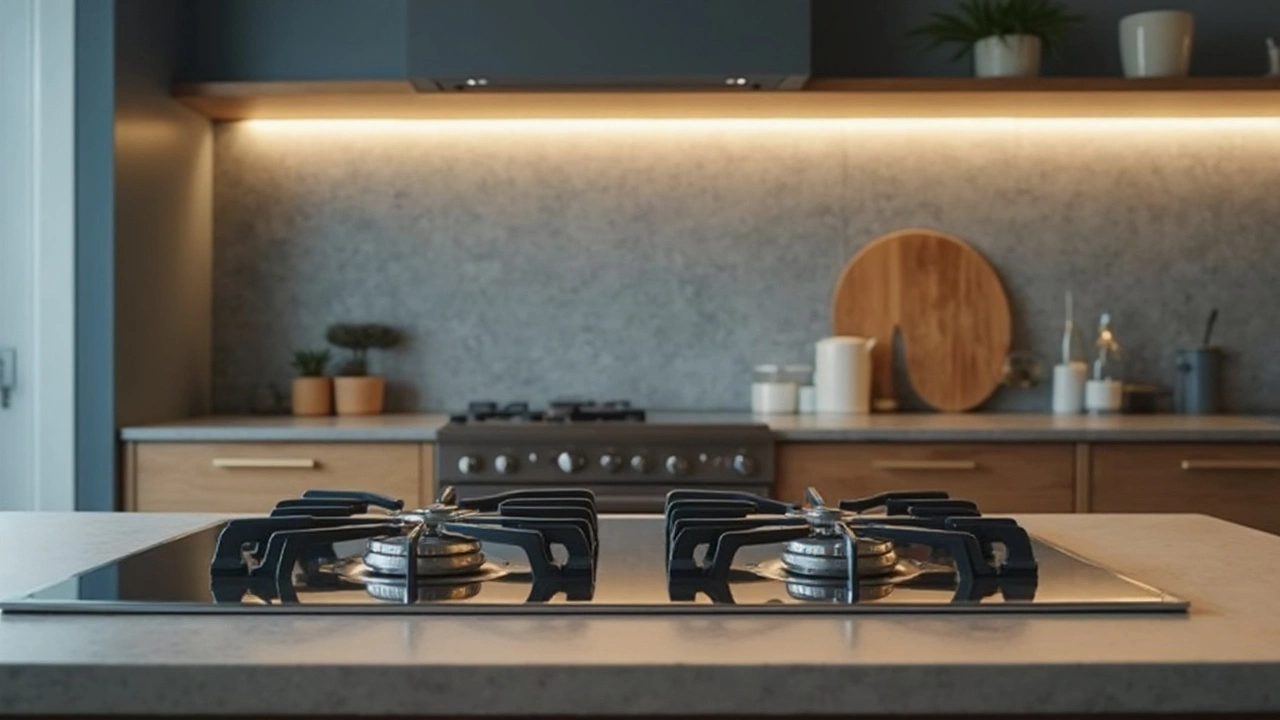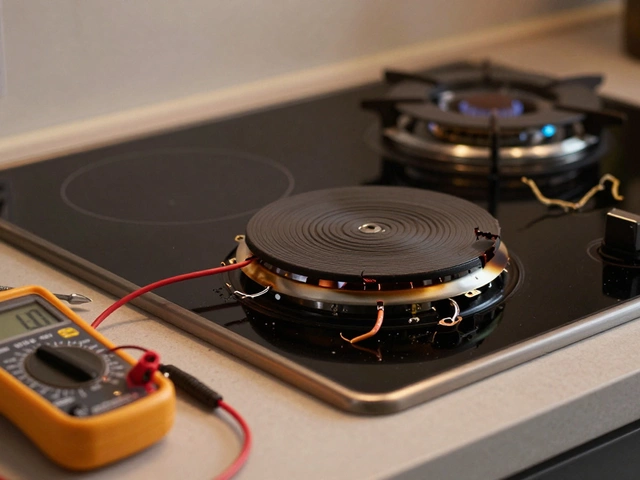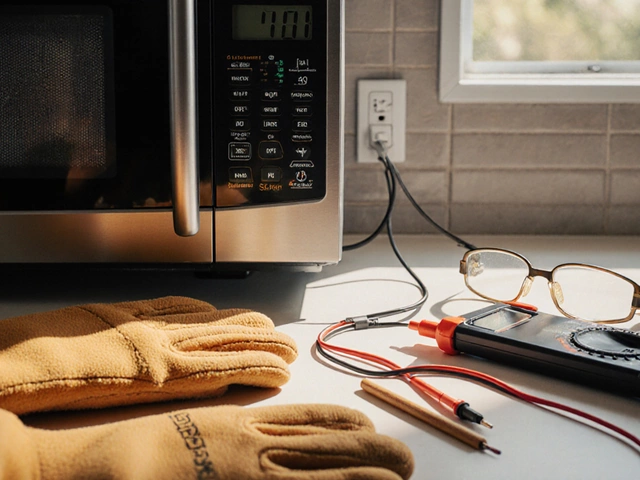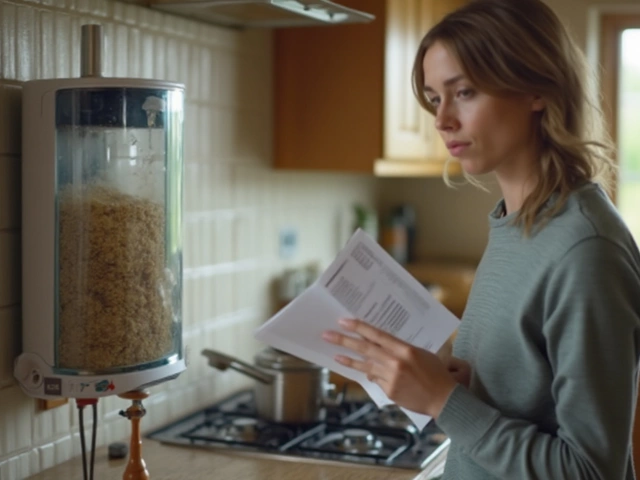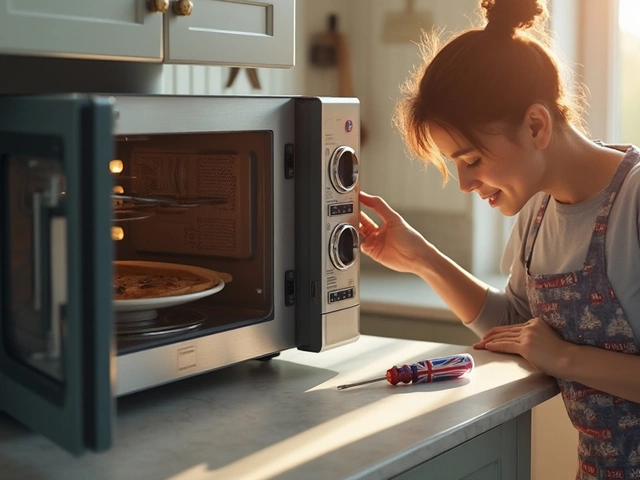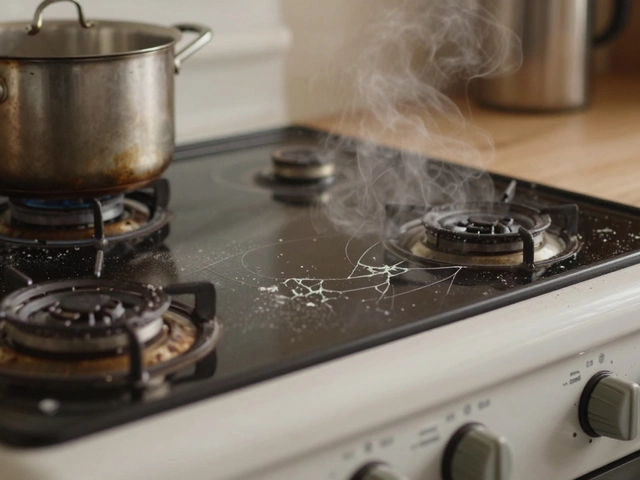You know that feeling when you're cooking a great meal, and your trusty gas hob starts playing up? Not fun. So, just how long are these kitchen workhorses supposed to last? Well, generally, a good quality gas hob might keep you cooking happily for about 10 to 15 years. Of course, it depends on how often you use it and how well you take care of it.
Every hob is different, mainly because of the varying factors that affect its lifespan. Stuff like how it's installed, how often it's used, and even the type of maintenance it gets can all play a part. A little TLC goes a long way with these appliances.
Stay tuned because we'll break down what could potentially shorten your hob's life and how you can keep it functioning like a dream. I mean, nobody likes unexpected repair costs, right?
- Understanding Gas Hob Lifespan
- Factors Affecting Longevity
- Maintenance Tips
- Signs Your Hob Needs Repair
- When to Consider Replacement
Understanding Gas Hob Lifespan
Let’s talk about how long you can expect your gas hob to keep you company in the kitchen. Generally, these appliances perform well for about 10 to 15 years, but there's a bit more to it than just waiting for the calendar pages to flip. The way you care for and use your hob plays a huge role in its lifespan.
Gas hobs are built to last with quality materials, but they’re not invincible. Regular cooking and maintenance habits greatly determine if they hit that upper limit of lifespan. Consistent use of cleaning products specifically made for stove tops can fend off rust and grime, which are known culprits for wear and tear. Ever thought of how improper cleaning might just shave off years of your hob's potential life?
On the flip side, if you’ve been skipping regular maintenance or subjecting it to high-intensity use day in and day out, don't be too surprised if it checks out earlier. It’s like any appliance; the better you treat it, the longer it works efficiently. Also, how about the impact of installation? A proper setup can also make a difference. Incorrect installation can lead to issues over time, which naturally affects the overall lifespan.
There's some data worth noting too. A survey of Australian households found that with regular maintenance, users noticed fewer repairs and could use their appliances effectively for a longer period. Proper cleaning, generally after every use, and professional check-ups at least once a year are the golden rules to follow.
So, if your goal is to keep your gas hob in top form for those full 15 years, showing it some love with regular care and attention really pays off.
Factors Affecting Longevity
So, what determines how long your trusty gas hob will stick around? Several factors can significantly influence its lifespan, from the way it's installed to your daily cooking routine. Let's break it down.
Quality of the Hob: This is a biggie. A high-quality gas hob from a reputable brand generally lasts longer. While it might cost more upfront, you're likely to get more years of reliable service compared to some of the cheaper models.
Usage Frequency: Are you a culinary whiz who spends hours experimenting in the kitchen, or is your hob mostly for quick dinners? The frequency and style of cooking can wear parts out faster or slower. Basically, the more you use it, the more chances it has to wear out.
Installation: Proper installation by a professional is crucial. A dodgy installation can lead to uneven wear and tear, not to mention potential safety hazards. It's not just about connecting a few pipes; it's making sure everything is aligned and set up just right.
Maintenance: Regular cleaning and upkeep can make a world of difference. Grease build-up and clogged burners are common issues that are easy to prevent. Plus, regular check-ups can catch small problems before they become big headaches.
- Regular cleaning of burners
- Checking for gas leaks
- Ensuring the flame burns blue, not yellow
- Occasional professional servicing
Environmental Factors: Believe it or not, your kitchen's environment plays a role too. Coastal areas with high humidity might lead to more corrosion, while homes with poor ventilation can cause your hob's components to degrade quicker.
In a nutshell, if you keep your gas hob clean, well-maintained, and use it sensibly, you're likely to enjoy it for many years. It's like having a well-behaved pet, just without the cuddles.

Maintenance Tips
Keeping your gas hob in tip-top shape isn't too tricky, but it does require a bit of regular effort. A big rule? Clean it regularly. Don’t wait for spills to get crusty. Wipe them up as soon as possible, which will help keep the burners working efficiently and avoid corrosion.
Another thing to remember is to check and clean the burners and hob igniter now and then. It's super easy to overlook them, but keeping these parts clean ensures efficient operation. Use a soft brush or a toothpick to get rid of any gunk in the burner holes, but be gentle!
Don't forget to inspect the gas connections and hoses for any signs of wear and tear. Make it a habit to check them once a year. Better safe than sorry, especially when it involves gas lines. If you notice any wear or damage, call a professional for a closer look.
Also, think about getting a professional check-up every couple of years. I mean, you do it for your car, so why not your hob? They can spot issues you might miss and keep your appliance running smoothly.
Lastly, always use the recommended type of cookware. Heavy pots can damage your gas hob over time, while pots with uneven bases can cause unnecessary strain on the hob grids and burners. It’s one more way to ensure your kitchen appliance sticks around longer.
Ready for a quick maintenance checklist?
- Regularly clean spills immediately to prevent stains and corrosion.
- Inspect and clean burners and igniters monthly.
- Check gas connections and hoses annually for wear.
- Consider professional servicing every couple of years.
- Use cookware that’s compatible with your gas hob’s surface.
By following these simple steps, you’ll not only extend the life of your trusty gas hob but also keep your kitchen running smoothly without any unwanted surprises.
Signs Your Hob Needs Repair
Ever noticed your gas hob acting a bit dodgy? It might be trying to tell you something. Here’s what to look out for.
If you’re struggling with uneven flames — one burner’s blazing while another’s barely flickering — that’s a big red flag. It usually means there’s an issue with the gas supply or the burners are clogged. Either way, it’s time to call in a pro.
Strange noises are another sign. Hissing, puffing, or popping sounds can indicate problems with the gas flow or even leaks. Not something to ignore, as it could be potentially dangerous.
Does your hob take forever to ignite? If you're burning through matches or getting annoyed with the click-click of the igniter without much happening, it might be a worn-out spark module or faulty ignition switch.
Now, look at your hob. If you spot rust, cracks, or any visible damage, that should ring alarm bells. These might seem like minor issues, but they can lead to bigger problems down the line.
Let’s talk about smells. A gas odor is never a good sign. If you catch even a whiff of gas when your hob is off, shut off your gas line immediately and get in touch with a professional.
Here’s a quick checklist to keep handy:
- Uneven flames
- Weird noises
- Slow ignition
- Visible damage
- Gas smell when off
By catching these signs early, you can save yourself a heap of trouble (and money) because sometimes, a repair is all you need to keep your kitchen appliances running smoothly.
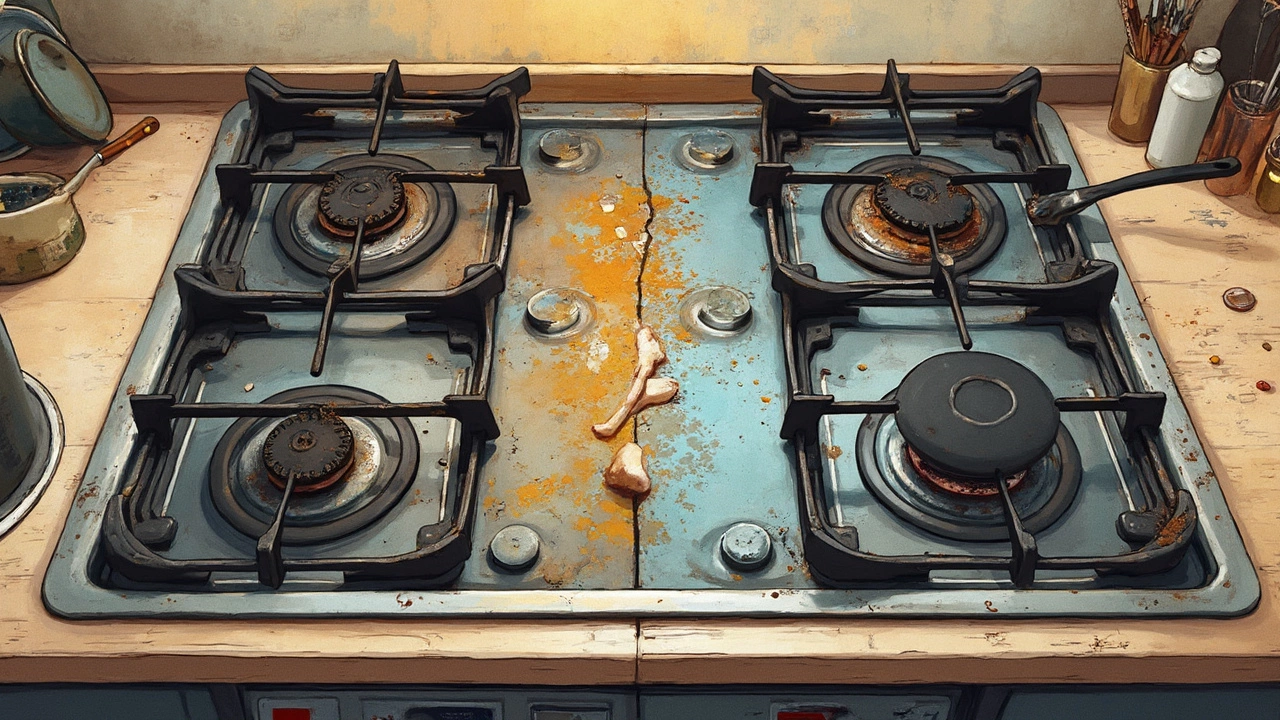
When to Consider Replacement
Ah, the inevitable question: when should you actually swap out that old gas hob for a shiny new one? Well, there are a few tell-tale signs that might clue you in.
First off, if your hob's showing its age with uneven flames or struggles to light up, it might be more than just needing a quick clean. These issues could suggest deeper malfunctions, and fixing them repeatedly might just end up costing more in the long run.
Also, if you notice persistent or recurring leaks, it's definitely time to think twice. Gas leaks aren't something you want to mess around with. Even tiny leaks can pose safety hazards, and a new unit might offer peace of mind.
Another red flag could be the hobs’ buttons and dials. If they're sticking or breaking, that's not a great sign for its overall condition. This can result from regular wear and tear over years of use.
And speaking of age, most hobs have an expected life under regular use. So if yours is reaching that 15-year milestone, you ought to start thinking about switching it out. Even if it seems like it's still kicking, newer models often come with improved safety features and better energy efficiency, which might save you money down the road.
Finally, it's all about the cost-benefit ratio. If the repair costs are mounting and starting to compete with the price of a new hob, it makes more sense to invest in a new appliance. After all, a new hob can heat up your kitchen adventures and keep things running smoothly.

